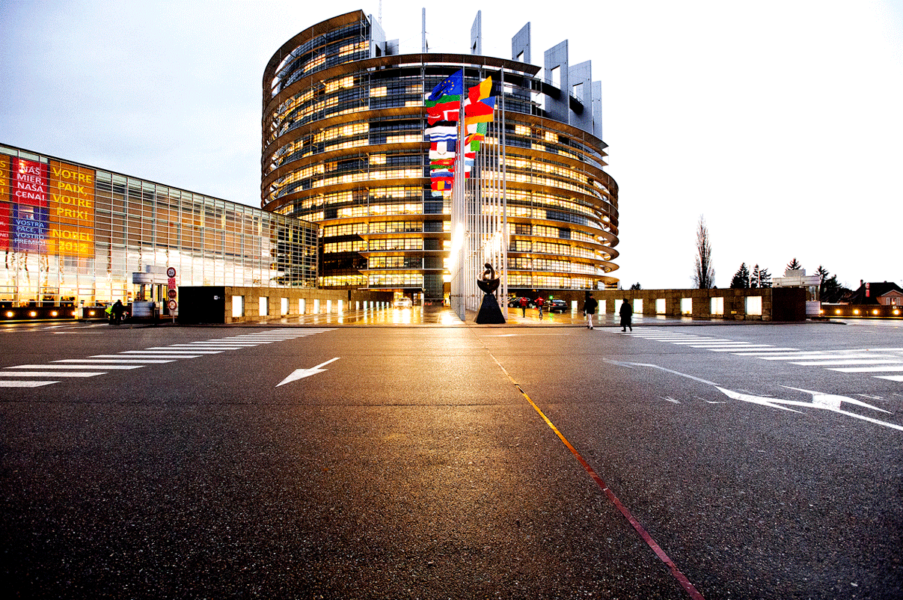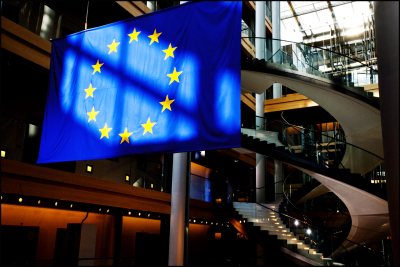The 3rd of July was the deadline for members of the European Parliament to submit their declarations of financial interest. By the end of the first plenary all MEPs, old or new, had to submit a range of information on their outside revenues, board memberships and financial holdings.
Transparency International congratulates the European Parliament for gathering this information in electronic form for the first time. This should help to make these declarations more accessible and the information more transparent.
The increased transparency on outside financial interests made us wonder how transparent the European Parliament is on the “inside” revenue of MEPs. In theory, the question on how much money a member of the European Parliament makes should be easy to answer and should be just a quick online search away.
Basic salary: 8.020,53 EUR
Indeed the Parliament’s website indicates that the monthly pre-tax salary of MEPs currently is 8.020,53 EUR – set at 38.5% of the basic salary of a judge at the European Court of Justice. This salary is subject to an EU tax and accident insurance contribution, after which 6.250,37 EUR remain. Some Member States levy national taxes.
But in order to answer the question “How much does an MEP make?” or “how much money is transferred to the MEPs personal bank account by the Parliament each month?” one has to dig deeper and also look at the different allowances that MEPs are entitled to:
Daily subsistence allowance: up to 4.864 EUR
MEPs receive a 304 EUR subsistence allowance for every day that they sign into the registry. MEPs can only sign in on days of Parliamentary activity – i.e. plenary sessions, group meetings or committee meetings are being held on that day. Dependant on their attendance MEPs can thus claim an average of 16 days per month or up to 4.864 EUR.
This allowance is meant to cover additional costs related to the “subsistence” in either Brussels or Strasbourg, meaning it covers costs for hotel or rent, transportation and meals.
Group presidents are exempt from the obligation to sign the register. They can either opt to be paid the daily allowance for all days of parliamentary activity or can communicate a list with dates of their attendance to the Parliament administration. The President of the European Parliament does not have to sign the register either and is paid the daily subsistence allowance 365 days a year. That adds up to an average 9,120 EUR a month.
General expenditure allowance: up to 4.299 EUR
The general expenditure allowance or office allowance of 4.299 EUR per month covers all expenses related to parliamentary activity that are not otherwise provided for. This can range from rent of the constituency office, telephone bills for the MEP and assistants, homepage maintenance, purchase of additional computers/phones and many other expenses.
Whatever remains of the general expenditure allowance at the end of the month remains in the personal account of the MEP. Many MEPs fully spent the office allowance on activities related to their parliamentary work. However, since checks by the Parliament’s administration are virtually non-existent, there is the risk that some MEPs might use part of this money to finance their political parties back home or pocket it themselves.
Travel allowances: up to 2.400 EUR
MEPs are reimbursed for all travel from their home to the European Parliament in either Brussels or Strasbourg. Travel within their own Member State is also reimbursed. This covers up to 24 return flights per year and up to 24.000km travelled in their own car, which would be reimbursed at 12.000 EUR (0,50 EUR/km). Travel by train is free for many MEPs in their home countries as they get unlimited rail passes by their national train operators. MEPs further dispose of an annual budget of 4.243 EUR for travel outside their home country. Since 2009 all travel costs are reimbursed at actual costs upon presentation of the supporting documents.
More interestingly though is that MEPs receive an additional distance and duration allowance. This allowance is calculated in a rather complicated way – involving a part for distance (calculated in different stages for increasing distance between 0,12 EUR per kilometre for the first 250 km and then gradually decreasing to 0,03 EUR for the part of the journey over 1.000 kilometres) as well as a duration part that provides additional “per diems” equivalent to the time spent travelling. For a Cypriot MEP from Nicosia this allowance would amount to around 2.400 EUR per month for 3 round trips constituency-Brussels and one round trip constituency-Strasbourg. The official justification for this allowance on the Parliaments website is to cover “other costs of travelling (such as motorway tolls, excess baggage charges and reservation fees)”.
Total: between 8.020,53 and 19.586 EUR
A regular MEP from say London, Paris or Cologne that spends his entire office allowance on parliamentary activities and has a good attendance record of 90% will have about 10.000 EUR a month or 120.000 EUR a year left in his or her account after having paid for all his office expenses and basic accommodation in Brussels or Strasbourg. This also means that the actual net revenue of such an MEP is over 60% higher than the basic salary that is widely communicated as MEPs salary.
A hypothetical MEP from Cyprus (furthest travel from Brussels) that attends all meetings in Brussels and Strasbourg and pockets the entire office allowance could theoretically receive more than 19.000 EUR per month.
…and a bit more for the President: 21.314,23 EUR
Vice-Presidents and the President of the European Parliament receive additional allowances. The Vice-Presidents each receive an 800 EUR a month representation allowance. For the President this allowance is 1.418,07 EUR. According to the EP discharge 2012 he also receives a 2.755,63 EUR residence allowance.
On top of what they receive from the European Parliament, 150 MEPs have also declared additional revenues from outside sources of at least 500 EUR per month, something that Transparency International will have a closer look at in the coming months.




